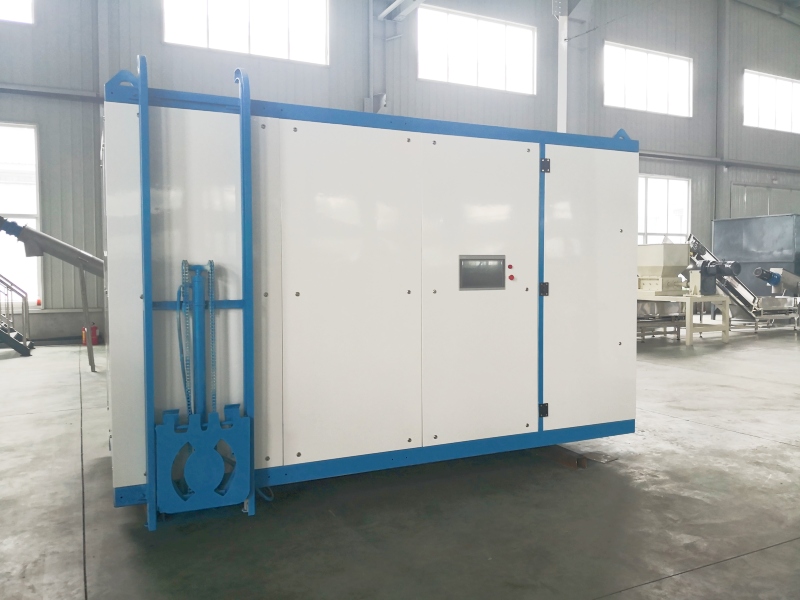
Introduction:
Waste food screw press dewatering machines play a crucial role in addressing the escalating global challenge of food waste. As societies continue to grapple with the environmental and economic repercussions of excessive food wastage, these innovative machines emerge as key players in sustainable waste management strategies.
Reducing Environmental Impact:
One of the primary reasons for the importance of waste food screw press dewatering machines lies in their ability to mitigate the environmental impact of food waste. These machines efficiently separate water from food waste, reducing its volume and preventing the release of harmful greenhouse gases associated with decomposition in landfills. By curbing methane emissions, these machines contribute significantly to environmental conservation and climate change mitigation efforts.
Resource Recovery and Renewable Energy Generation:
Beyond waste reduction, these dewatering machines offer the additional benefit of resource recovery. The separated water can be treated and reused, minimizing the strain on freshwater resources. Moreover, the dewatered organic material can be utilized for renewable energy production through processes such as anaerobic digestion or composting, aligning with the principles of a circular economy.
Cost-Efficiency and Economic Sustainability:
In the realm of waste management, cost-efficiency is a crucial consideration. Waste food screw press dewatering machines present an economically viable solution by reducing the transportation and disposal costs associated with wet and heavy food waste. The recovered resources, such as biogas or compost, can further contribute to economic sustainability by providing alternative energy sources or soil amendments.
Hygienic and Odor Control:
Another vital aspect of these machines is their ability to enhance sanitation and control unpleasant odors associated with decomposing food waste. The dewatering process minimizes the moisture content in the waste, creating an inhospitable environment for the proliferation of pathogens and reducing the emission of foul odors. This aspect is particularly significant in urban areas where efficient waste management is essential for maintaining public health and well-being.
Versatility and Adaptability:
Waste food screw press dewatering machines exhibit versatility by accommodating various types of food waste, including kitchen scraps, restaurant leftovers, and industrial food processing residues. This adaptability makes them a versatile tool for a wide range of sectors, from households to commercial establishments, contributing to a holistic approach to food waste reduction.
Conclusion:
In conclusion, waste food screw press dewatering machines stand as pivotal players in the global effort to combat food waste. Their multifaceted contributions, ranging from environmental conservation and resource recovery to economic efficiency and hygienic waste management, underscore their significance in building a sustainable and responsible approach to waste disposal. As societies strive for a more circular and resource-efficient future, these machines are poised to play an increasingly crucial role in shaping the landscape of waste management practices.




If your company wants to establish a business relationship with us, please briefly describe the cooperation intention and send an email to:chuantaiscrewpress@gmail.com























































































![[list:title]](/static/upload/image/20240528/1716877114510915.jpg)